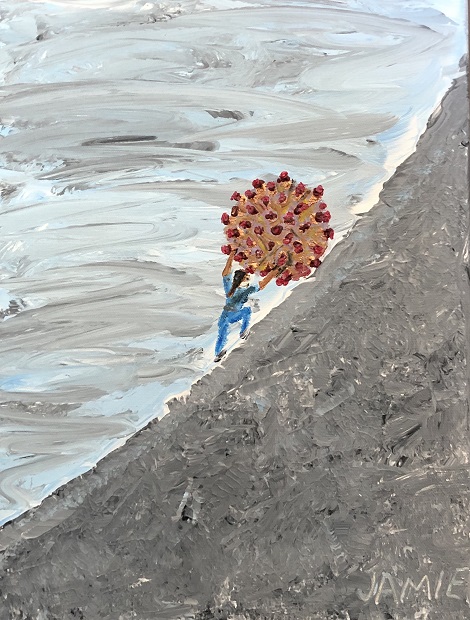An uphill battle
Envisioning the future of the pandemic was difficult at the end of March.
It's near the end of March, and I'm sitting at my kitchen table after a long day of hospital strategic planning. Around the world people are falling sick by the tens of thousands. On the day I'm writing this, over 45,000 people have succumbed, and that number is sadly and surely not at its peak. This column won't be published for two months. It's quite difficult to predict where we all will be in 60 days. Things might have gotten better, or at least stayed the same, but more likely they've worsened. As I ponder the pandemic, I'd like to share my personal state of mind and the seemingly insurmountable challenges to come, despite the knowledge that this will be history before these words are printed.

When I first heard of the novel virus, I thought of novel anticoagulants. What makes things novel? Who could have guessed that the word Corona would become such a common part of our lexicon? A name redolent of Mexican beaches and lime had become a deadly disease. Eventually the nomenclature settled on the term “COVID-19.” We'd seen coronaviruses before. I remember SARS in 2003, and hospital staff dying in Toronto. Of course that disease affected many others, something like 774 deaths in total (about 1.7% of the number who have died of COVID-19 as I write this), but the effect on medical personnel close to home had a big personal impact. Then there was MERS, also caused by a coronavirus. I thought about that one a lot in my role at the Mayo Clinic Admissions and Transfer Center. Were these any less novel?
It seemed at first that the Chinese government, exercising its autocratic might, would be able to quarantine its way out of the worst of the disease, but in our global society that was not to be. That horse had already left the barn. One way the infection spread was by sea, via cruise ships. The concept of the “plague ship” is not a new one. The term “quarantine” comes from sailing vessels. In the 17th century, ships sailing into Venice were held for 40 days (quaranta giorni) to prevent a Black Plague epidemic. Infections in cruise ships are not a new phenomenon (think norovirus). And now Italy turns out to be a major part of the story centuries later.
In the United States, as we move into our own burgeoning pandemic experience, we have turned to social distancing. Again, by the time you read this, we will all have a better sense of the public health, societal, financial, and spiritual impact. In the age of social media, many of us have already felt distanced, but the meaning of the expression “going viral” has now changed. We are moving toward telework and telehealth, and it will be a major potential societal shift. As I write this, CMS just announced all-new, less prescriptive rules for telemedicine. Time will tell if we have all flattened the exposure curve enough to prevent overwhelming our nation's hospitals. And when this is over, will we readily go back to crowded dance floors and arenas? I suspect that will take some time.

At our hospital, in scenic Rochester, Minn., we are hoping for the best, but preparing for the worst. Will we face our own shortages of medications or protective gear, or worse, ventilators? It's easy to be transfixed by our information feeds, consuming every report, while watching portfolios plummet. It's all COVID-19 all the time.
Last night, I needed to find a way toward inner calm, so I painted the picture you see here. I thought of Sisyphus rolling a stone up a hill for eternity (see “Hospital Servi-Sisyphus,” November 2016 Newman's Notions) as a metaphor for our current apparently overwhelming task of treating COVID-19. But unlike Sisyphus's project, ours will end eventually. We will rise to meet the challenge. Still, I wonder how many people will die or have their lives uprooted? What will things look like to the reader just two months from now? Time will tell.



